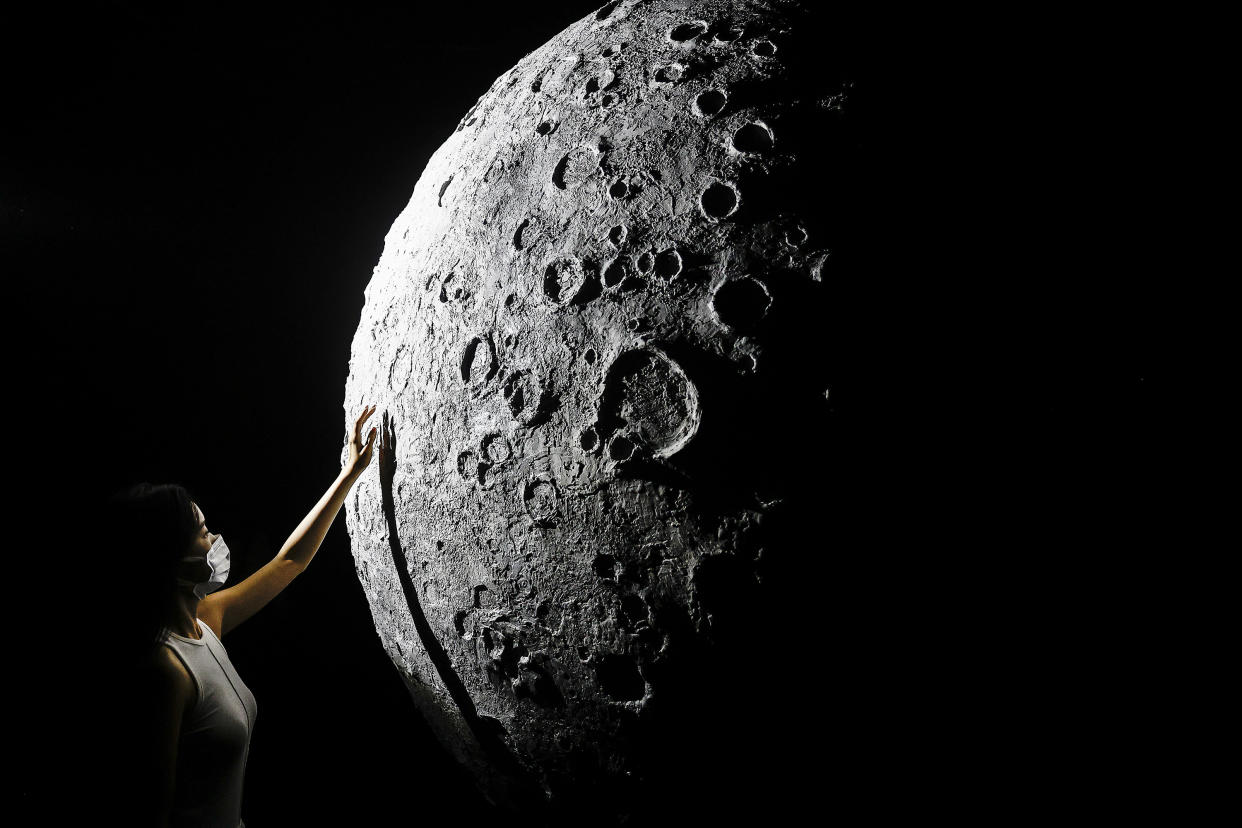NASA administrator: China’s space ambitions pose threat of land grab on the moon
NASA administrator Bill Nelson warned China’s rapid advancement in space capabilities threatens to ignite a territorial land grab on the lunar surface, much like the tensions that have played out in the South China Sea.
Speaking to Yahoo Finance, Nelson raised concerns about the risk of the US falling behind in the global space race as Beijing pushes ahead with its ambitions to land astronauts on the moon.
“I think it's not beyond the pale that China would suddenly say, 'We are here. You stay out,'” Nelson said. “That would be very unfortunate — to take what has gone on on planet Earth for years, grabbing territory, and saying it's mine and people fighting over it.”
Nelson’s repeated warnings come as NASA’s Artemis moon program faces delays in the agency’s efforts to return astronauts to the lunar surface for the first time in decades.
Artemis II, carrying four crew members, was scheduled to conduct a lunar flyby later this year, and Artemis III was expected to send the first woman and first person of color to the moon in 2025. Both missions have been delayed by a year following concerns about key hardware onboard the launch vehicle.
China has stated its own ambition to land a crewed mission on the moon’s south pole by 2030. That goal signals a rapid advancement in the country’s space program just 20 years after it launched its first astronaut into orbit.
The country now aims to complete a record 100 orbital missions in 2024, a 40% jump from the previous year, according to state media. That would put its space program on pace to become the world’s second-most-active launcher behind Elon Musk’s SpaceX.

Nelson’s concerns largely center around the lunar south pole. The moon's southernmost point is thought to contain water ice, a critical resource for future exploration and prolonged missions. Nelson said the possibility of rocket fuel made from converting water to hydrogen and oxygen could turn the south pole into a type of “gas station.”
“When you combine [China’s] history of their politics on Planet Earth, we just need to be careful that a celestial body such as the moon, such as Mars, is open for all, and it doesn’t become a territorial grabbing,” Nelson said. “That’s what we want to avoid.”
NASA has pushed to set the ground rules through the Artemis Accords as more countries push deeper into space. Founded in partnership with seven other countries, the statement lays out principles and guidelines for peaceful exploration of the moon and beyond.
While 38 countries have voluntarily signed onto the accords, China has not.

“I invite China to sign the Artemis Accords,” Nelson said. “It is a declaration of peaceful intent to always respect another's position in space. A declaration of coming to the assistance of another in times of trouble.”
The lack of agreement and growing competition between the two countries threatens to elevate already simmering tensions on Earth into orbit.
Earlier this month, General Stephen Whiting, commander of the US Space Command, accused China of building a “kill web” over the Pacific Ocean with its growing network of satellites. The country has more than tripled its on-orbit intelligence, surveillance, and reconnaissance satellites in just five years, he said, speaking at the Space Symposium in Colorado Springs, Colo.
That fragmentation is only expected to accelerate as the International Space Station retires, the Chinese Space Station continues to expand, and commercial companies pursue their own ventures.
Click here for the latest technology news that will impact the stock market.
Read the latest financial and business news from Yahoo Finance
